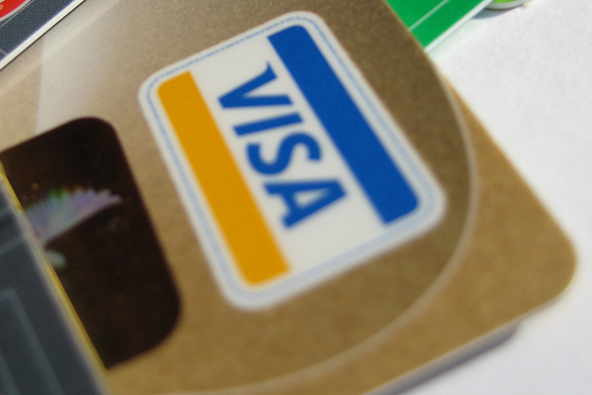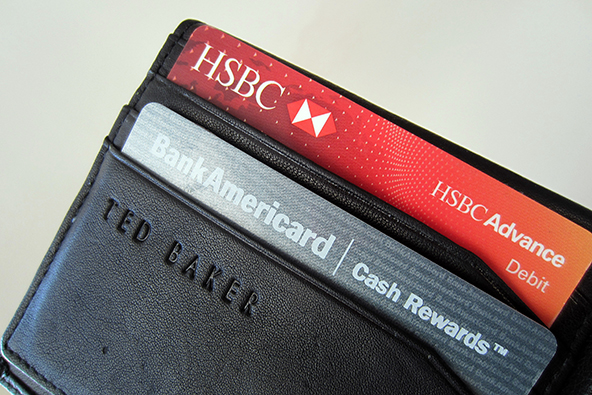Wind Knocked Out of VeriFone’s Sail

VeriFone is the first high-profile victim of the war of the Square clones that has been raging with an ever-increasing intensity for more than two years now, Reuters tells us. The humiliating announcement of the point-of-sale (POS) hardware maker’s surrender is nowhere to be found on the company’s website—at least this blogger wasn’t able to locate it—but CEO Doug Bergeron is quoted of making some revealing comments about his decision during a conference call with analysts.
Some readers may recall that, back in March of 2011, in his attempt to gain some kind of advantage against a rival, which had already taken a sizable early lead in the direct mobile credit card acceptance market, Bergeron launched a dirty campaign by posting an open letter on his company’s website and producing a video to go along with it. In them, he announced that he had discovered a “serious security flaw” in Square’s credit card reader that compromised the security of cards swiped through it, placing “consumers in dire risk” in the process. In the event, no one paid much attention and Square just kept growing and pouring huge sums of venture capital money into ubiquitous advertising campaigns. With hindsight, one is tempted to observe that Bergeron would have spent his time much more productively promoting his own company’s offering and working on his mobile payments strategy instead. As it is, that is all now water under the bridge.
A Sail out of Wind
So here is what Reuters tells us:
VeriFone, a leading provider of card readers and payment processing services, unveiled VeriFone Systems Inc (PAY.N) said on Thursday it will pull out of the hot business of signing up small merchants to accept credit card payments, reducing competition for start-up Square Inc and other companies that jumped into the space recently.
Now, it should be noted that VeriFone’s capitulation does little to make the direct mobile credit card acceptance space any less crowded. The list of Square would-be slayers is still almost endless. On this blog alone, we must have reviewed more than a dozen, including, in no particular order, Intuit GoPayment, PayPal Here, Sage Payment Solutions, Eventbrite, GroupOn, mPowa, iZettle, Bank of America’s Mobile Pay, PayAnywhere and GoPago.
Yet, even as Sail’s departure would still leave Square with plenty of company, the reasons Bergeron cited for his decision are quite revealing and indicative of the huge challenges before the less-well funded protagonists in the mobile payments drama.
Signing up Consumers Is ‘Fundamentally Unprofitable’
Here is what Reuters tells us about VeriFone’s decision to pull out of the direct mobile credit card acceptance scramble:
[I]t is hard to make a profit from such services because the provider is at least partly responsible for any problems, such as fraud. That’s the reason VeriFone decided to get out of the business.
“Our experience through 2012 with tens of thousands of these micro-merchants tells us that the standalone economics of micro-merchant acquiring are fundamentally unprofitable,” Doug Bergeron, chief executive of VeriFone, said during a conference call with analysts.
The cost of tracking down and signing up small and individual merchants, through things like TV and Internet-search advertising, “will never justify the razor thin-margins produced by merchants with infrequent volumes and extremely high attrition,” he added.
Now, there are several things that stand out in Bergeron’s statement, none of them flattering to him and I will touch on a couple of them. Let’s begin with the immediate reason given for the decision—fraud. Well, of course fraud is a huge issue and dealing with it must have been placed at the very core of any mobile payments solution. And if Square—a newcomer to the payments industry—has managed to deal with it successfully, there can be no excuse for a veteran like VeriFone not to have been able to cope with the challenge. I mean, even PayPal is a relative novice when compared to VeriFone! But then, fraud is not really the issue here.
The unprofitability part of Bergeron’s statement could attract a bit more sympathy, but only if it were genuine, which it is not. See, we know that giving a payment processing account—a merchant account—to a consumer is a money-losing proposition to traditional service providers, which, of course, is why no one is doing it. It is also true that giving most consumers a Square-type of credit card acceptance capabilities is also of dubious value to a processor. However, once you’ve achieved sufficient scale, and Square just might have already done that, the laws of averages begin to work in your favor, as PayPal demonstrated more than a decade ago. And Bergeron surely knows that full well. He may not have been willing to take the risk of taking Square on in a serious way or perhaps he simply could not match his competitor’s financial might. Whatever his reasons, Bergeron’s fundamental unprofitability statement is disingenuous in the extreme.
The Takeaway
I can’t help but observe that, much to the annoyance of heavyweight industry players like Visa, MasterCard, American Express and all the big banks, almost fifteen years after it was founded, there is only one PayPal. Having initially snubbed an upstart wanting to provide free money transfer services to consumers, said heavyweights never managed to match PayPal’s entrepreneurial drive, once they finally woke up to the start-up’s full potential.
Ever since I first took a close look at Square, I have viewed it as the mobile payments PayPal and the evolution of Jack Dorsey’s creation has never given me a reason to reconsider my initial assessment. If anything, I may have been a bit too timid in my forecast.
Image credit: Sailpay.com.



Verifone has a respectable patent portfolio dating back to 1996 … the early days of mobile payments. Check out the claims in U.S. Pat. No. 5,889,863 (System, method and article of manufacture for remote virtual point of sale processing utilizing a multichannel, extensible, flexible architecture). If Verifone is looking to disrupt the momentum of its mobile competitors, then it might choose to assert the ‘863 claims, (which appear broad) and/or other claims from the dozens of patents in its portfolio, to preserve its market share while improving Sail.